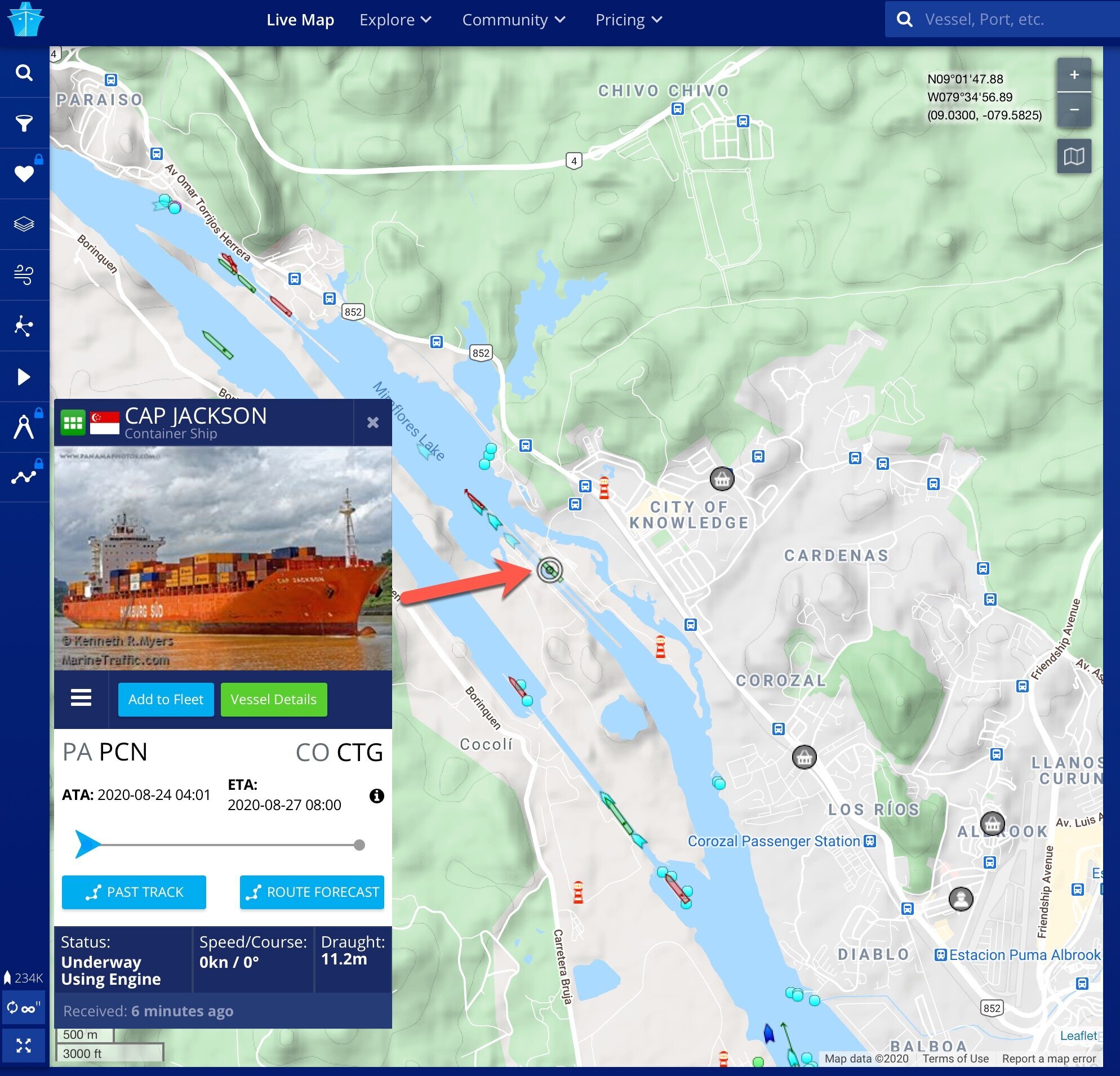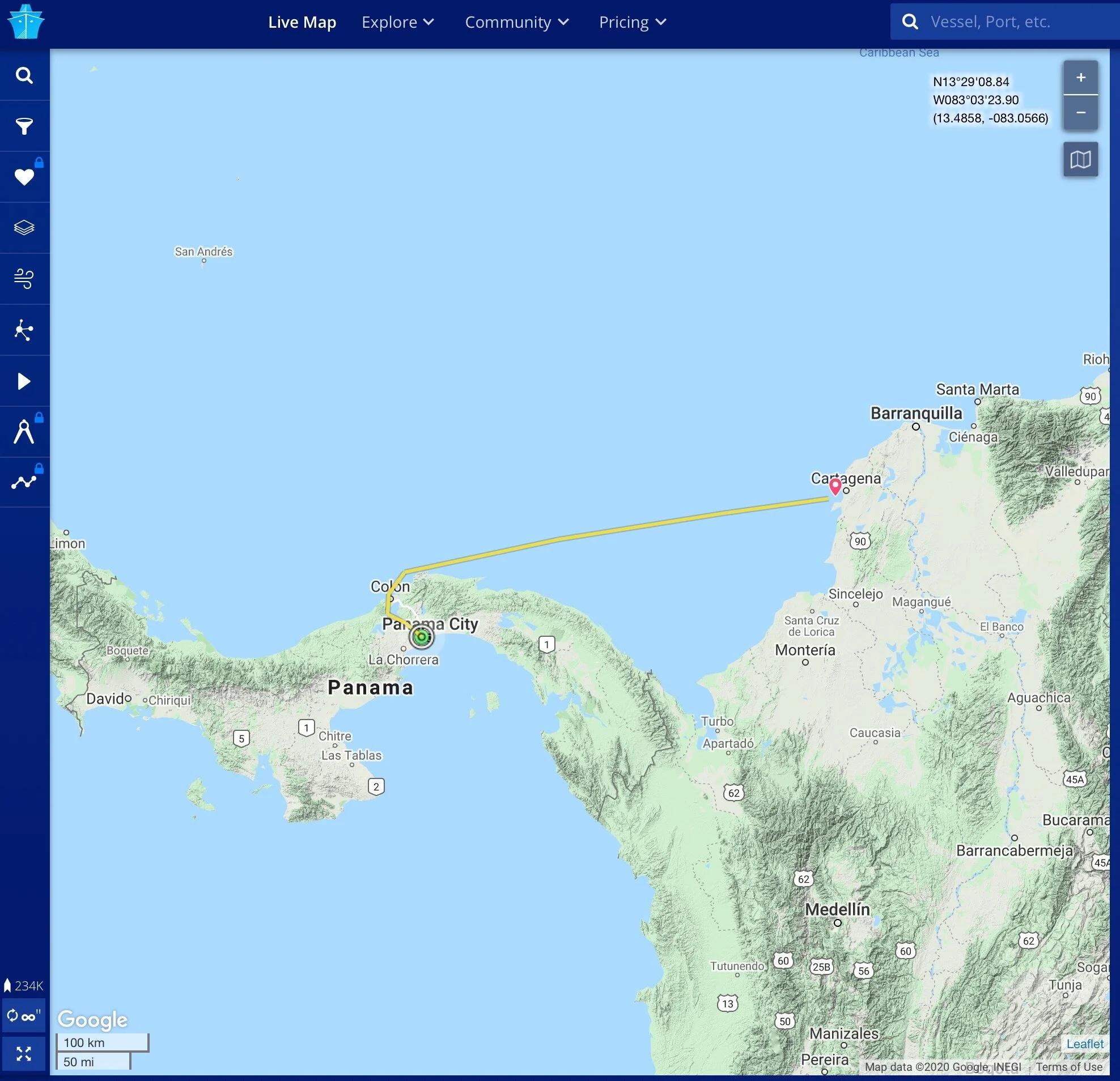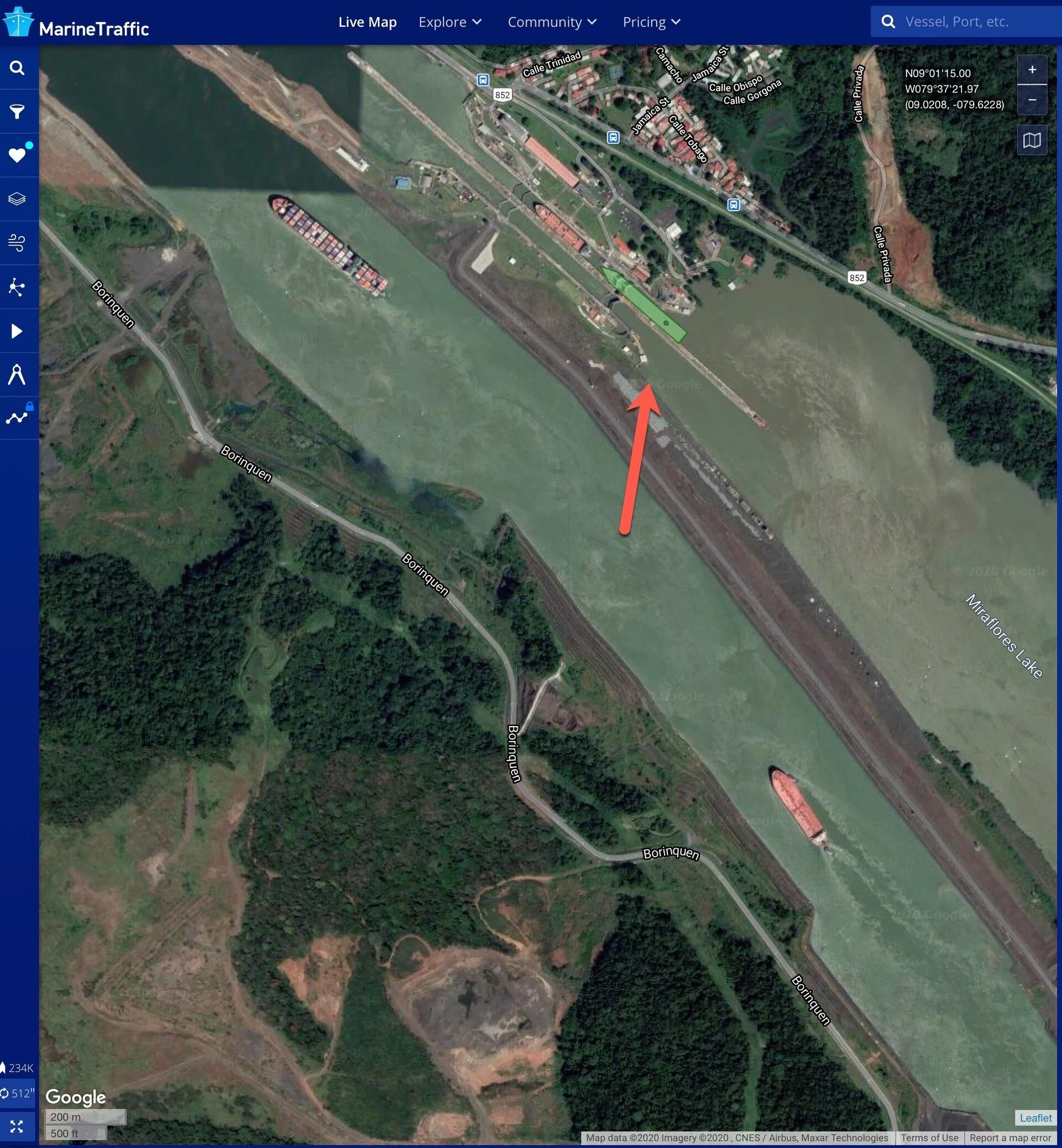The CAP Jackson is on the move!
Monday was an exciting day for us. Fairly early in the morning Ann yelled down the stairs, “Dan, it’s moving! The CAP Jackson is on the move”. So throughout the day we checked on her progress and although its several days later (ok, I’ve been very busy at work) it’s still worth sharing a pretty exciting day!
This is an image-intensive post without a lot of narrative, but hopefully there’s enough diversity to keep your interest and to convey the sense of excitement we felt throughout the day. At the least, you’ll be able to see some of the tools that are available on-line to track things. Ann uses (and I always take Ann’s technical advice to heart, so I too use) a free app called Marine Traffic that is pretty simple to use and offers a variety of tools even in the free version.
When Ann first checked, the CAP Jackson was already in the first set of locks.
I zoomed in a bit and switched the screen to get a photographic view (not real time) of the lock. I’m not sure what distinguishes red ships from green ships, but we’re a green ship. The actual ships in the photos are . . . no longer there, so the CAP Jackson is not piggy backing onto another vessel.
One of the tools in Marine Traffic is the “past track” function, which shows you a track of the vessel over time. Here you can see it moving from anchor to the locks.
I remembered that Ann had said that there are cameras at one of the locks, so I checked. Nothing. Looking at the page though, it had a review of the past 24-hours, so I clicked the button. Maybe we’d get lucky.
We did! Check out the bottom left corner of the image - CAP Jackson, Singapore. In the Miraflores Locks on Monday August 24, 2020 at 5:47:01 am. Our household goods are somewhere on that vessel!
Ann decided to check out another function on Marine Traffic - Route Forecast. After passing through the canal, it is on its way to Cartagena, Columbia.
After working awhile I checked back in and the Cap Jackson had made it to the second set of locks heading into the canal.
Not long afterwards, it left those locks to enter the canal, which leads to a giant lake. Note on the Cap Jackson window the description at the bottom - underway using engine at 6.5 knots.
Several hours later, it was slowing down and about to drop anchor, where it would stay for awhile.
On one of my check-ins, I decided to do another previous route check. From at anchor waiting to enter the locks to at anchor waiting to enter the locks. And, in case you were wondering, the CAP Jackson is not an amphibious vessel - it did not cross overland near Gamboa. Apparently the free version of Marine Traffic only works whenever the vessel is in a cell-phone coverage zone. When it’s out of coverage and there is no tracking, it just connects the dots from last to next reading. My guess is that there is a long stretch of the canal where there really isn’t phone coverage. That or the CAP Jackson is an amphibious vessel.
Ann caught the CAP Jackson as it started underway towards the Gatún locks, and did a track as well.
By this point it was night our time and we were getting ready for bed. No longer working, I would go upstairs, brush my teeth, come down and track the ship. Up and down, up and down, and eventually just sat at my computer, updating the program every few minutes to see the progress. Here’s the CAP Jackson entering the first of three connected locks to get out of the Canal.
It may seem pretty boring to do, but when it’s “your ship” there is something exciting in watching it move from lock to lock.
And it would take 20-30 minutes for the vessel to move, the lock to fill (or is it drain?). . .
And then to move on. I decided I was going to see it through the lock. The yellow arrows below are pointing to the lock doors. The red arrow is the CAP Jackson
Eventually, it moved to the second lock.
And then I caught it as it was moving from the second to third locks. At a speedy 1.7 knots.
The updates happened every few minutes, and the screen shot below shows you how long ago the location was recorded. Usually it said 2 or 3 minutes, sometimes it was higher, sometimes it was 1.
Since I was checking every few minutes, I caught it right as it started to leave the third and final lock.
So I started making frequent screen captures, as it slowly left the lock. Note that the nose has passed the lock doors.
Now the vessel is half way out . . .
Now the vessel is half way out . . .
I mulled around a bit wanting to see it on it’s way and tracked the course every so often for another half hour.
At one point I caught it going under the Puente Alántico bridge.
And finally into the harbor at Colón. Time for bed.
The next morning Ann and I checked the Cap Jackson’s progress. As expected, out in the open ocean it was well under way running at a good 11.8 knots.
But as you can see, the timing of the reading has changed considerably - the location was hours old. Nothing would change about the location of the CAP Jackson until it arrived into cell coverage somewhere. So from Tuesday to Thursday we could only guess at a location.
Now it’s Thursday morning our time and while I’m making coffee, Ann checks MarineTraffic. Sure enough, the Cap Jackson appears and is just outside Cartagna.
We’re not sure what her next port is, but we’ve been updated that ETA to Leções, Portugal is September 12! Time to take care of a couple of last minute things in preparation for our household goods.


























